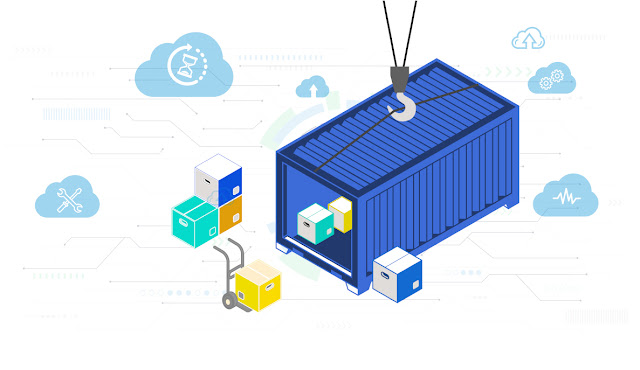How Container as a Service (Caas) is Changing Future of the Future of Could Computing

Container as a Service (CaaS)
What is a Container?
Application code, libraries, and
their dependencies may all be placed into containers, which are useable units
of software that can operate anywhere—on a desktop, in traditional IT, or in
the cloud.
Container as a Service (CaaS)
Users may upload, modify, start,
stop, rate, and manage containers, apps, and collections in various ways using
the Containers
as a Service (Caas) cloud service paradigm. Using tool-based
virtualization, an API, or a web portal interface, it makes these procedures
possible. Users of local or cloud data centres may construct complex, secure,
and dispersed applications with the aid of CaaS. With this paradigm, containers
and collections are placed in the cloud or on-site data centres and consumed as
a service.
Software developers and IT
departments may upload, organise, operate, scale, manage, and stop containers
utilising container-based virtualization through the use of containers as a
service (CaaS), a cloud service. Often, a CaaS provider will offer a framework
that enables consumers to use the service. Providers frequently employ web
portal interfaces or calls to application programming interfaces (APIs).
How do Containers as a Service (CaaS) Work?
A container orchestration engine
is hosted by a CaaS service provider. The operational effort to execute
containerized workloads and services is automated by this engine. It consists
of the tools needed to deploy, scale, balance, and provide containers. Via
container-based virtualization, a web portal interface, or an API call, users
can access these resources and services.
Popular CaaS Providers List
The majority of public cloud
service providers, such as Amazon, Google, Microsoft, and IBM, provide CaaS
services. These cloud service companies have the following names for their CaaS
offerings:
Amazon Elastic Container Service (Amazon ECS)
You can deploy, manage, and scale
containerized applications more effectively with the aid of Amazon ECS, a fully
managed container orchestration service. It has tight integration with the AWS
environment and offers a user-friendly method for executing container workloads
with top-notch security features both locally and in the cloud utilising Amazon
ECS Anywhere.
Google Cloud Run
Using the managed computing
platform known as Cloud Run, you can instantly execute containers on top of
Google's scalable infrastructure.
Any programming language can have
code deployed on Cloud Run if a container image can be created from it.
Building container images is actually not required.
Microsoft Azure Container Instances (ACI)
Without the need for virtual
machines, Azure Container Instances (ACI) is a managed service that enables you
to run containers directly on the Microsoft Azure public cloud (VMs).



Comments
Post a Comment